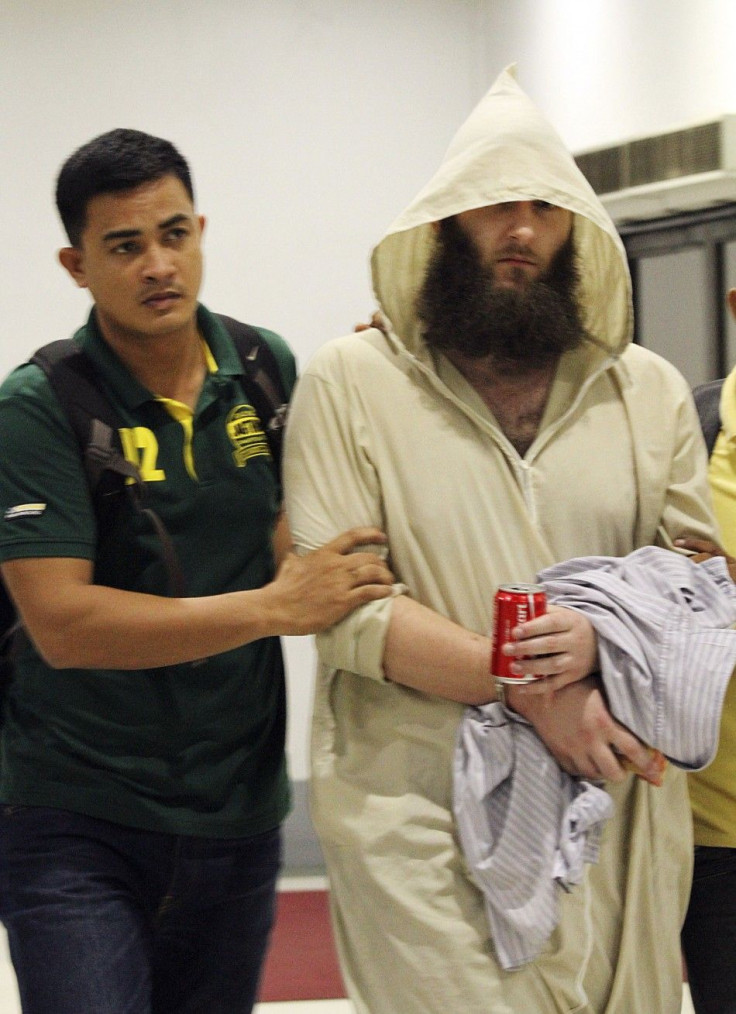UN Report On 15,000 Foreigners Joining ISIS Fighters In Syria And Iraq Will Shock You

The United Nations warns that foreign converts are joining the Iraq and Syria war in droves on "an unprecedented scale" from countries that had not previously contributed to global terrorism. A report by the UN Security Council says that 15,000 have travelled to Syria and Iraq to join the Islamic State and other militant gangs.
The converts arrive from over 80 countries, including those that have not earlier faced challenges related to al-Qaeda, according to The Guardian. Numbers since 2010 are multiple times the size of the numbers provided by foreign terrorist fighters between 1990 and 2010 - and are increasing, says the report, produced by a Security Council committee monitoring al-Qaeda. British government figures say that 500 have joined them in the past two years, while hundreds arrive from the U.S., France, Belgium, Germany and the Netherlands.
Other sources cite more numbers. Almost 20,000 from nearly 70 countries have pledged that they want to join the Islamic State, according to Daily Motion. The UN's findings support U.S. intelligence reports about the scope of the foreign fighters, which the UN report says has spread, even though the U.S. is trying to combat it with "counter-terrorism strikes and global surveillance dragnets."
Haaretz confirms that ISIS is luring "young disaffected citizens to its more-radical-than-al-Qaida ranks" because most of these foreigners, according to European researchers, are neo converts who tend to get attracted to extremist interpretations. For instance, one of the most well-known radical Muslims in Germany, Gerhard Cuspert, earlier a rapper once called "Deso Dog," has converted and is now fighting in Syria in sync with the Islamic State, according to an Al-Monitor media site. The Islamic State does not stand only by nationalist identifications, and instead wants an Islamic caliphate across borders, which exports and imports terrorism.
The European fighter force in Syria, and Iraq, is overwhelmingly new in "both its scope and speed," says Jeanine de Roy van Zuijdewijn, a researcher at the Hague's International Centre for Counter-Terrorism according to Haaretz. The UN report did not disclose the list of the 80 countries that were contributing fighers, but recently, ISIS supporters were found to be drawn even from Maldives, from Chilean-Norwegian and other disparate backgrounds. There are foreign terrorists from France, Russia and UK and Northern Ireland too.
UN reports that both the al-Qaeda and ISIS have sundered, yet their goals and ambitions are the same, if not similar. ISIS seems to exhibit a "cosmopolitan" exploitation of social media platforms, internet culture, Twitter, Snapchat, Kik and Ask.fm.
As revenues from oil smuggling operations are estimated at $1m per day, ISIS controls territories in Iraq and Syria, which houses five to six million people. Its treasury is almost $45m from kidnapping. The family members of ISIS victim James Foley, an American journalist, have asked why ransoms are not being paid, which the U.S. refused to give on the ground that it would only attract more kidnappings.
Two months of the U.S. war against ISIS lacks ground support, as Obama does not want direct U.S. ground combat. The U.S. wants to collect an anti-ISIS army in Syria, but has not even started building them up from Syrian rebels. One section encourages the Iraqi government to directly arm Sunni tribes to fight against ISIS' advances through the western Anbar Province.





















